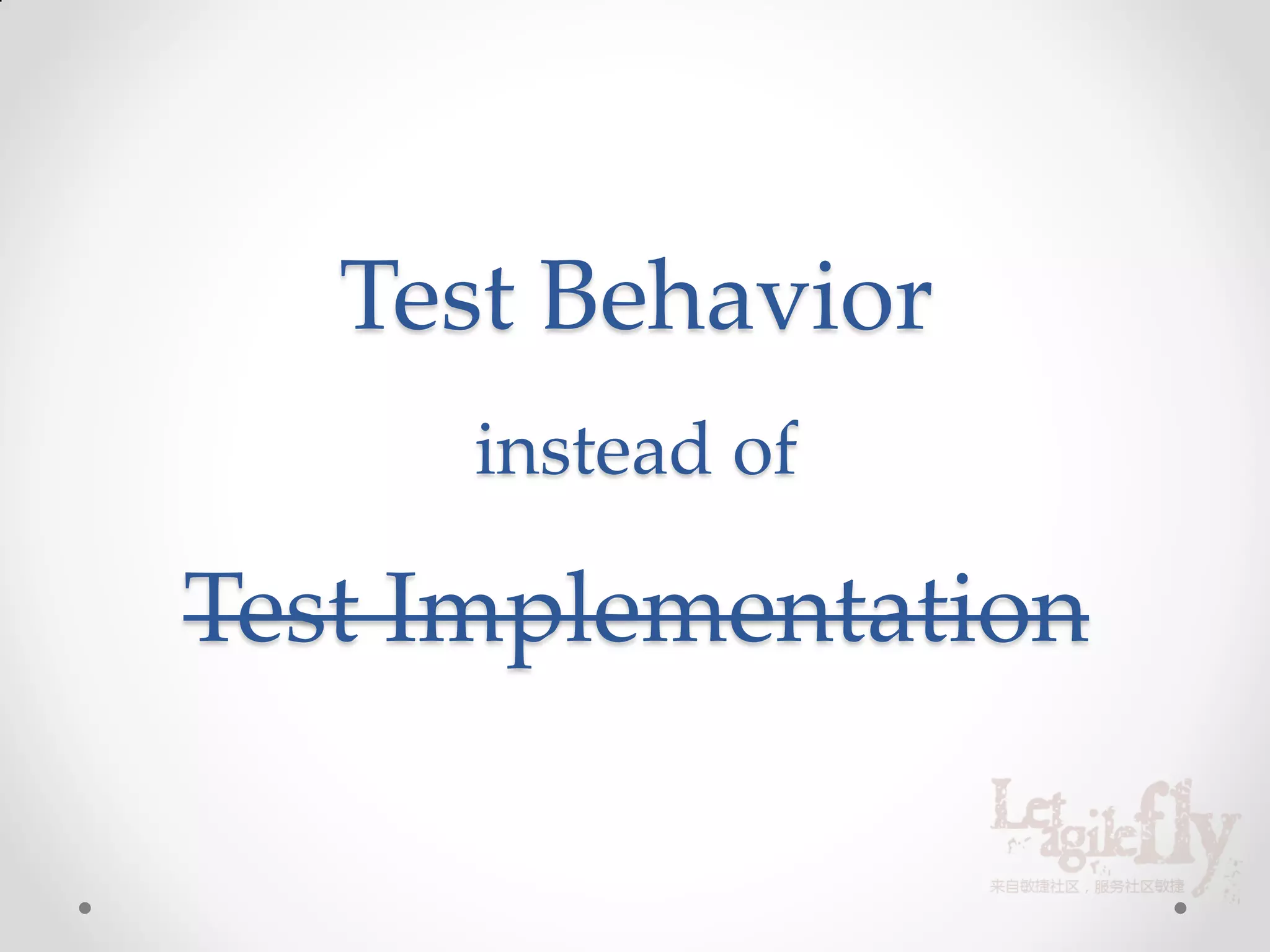The document discusses strategies for writing unit tests for new code built on legacy code, emphasizing that legacy code is defined as code without tests. It offers techniques to make new code testable, including the use of dependency injection and design patterns such as the sprout method to avoid impacting existing legacy systems. Key principles include isolating dependencies and adhering to the single responsibility principle to enhance testability.

























![How to Isolate “HttpServletRequest”?
public class ARMDispatcher {
public void populate (HttpServletRequest request) {
String [] values
= request.getParameterValues(pageStateName);
if (values != null && values.length > 0) {
marketBindings.put(
pageStateName + getDateStamp(), values[0]);
}
}
}](https://crownmelresort.com/image.slidesharecdn.com/scrumgathering2012shanghaihowtowriteunittestfornewcodebasedonlegacycode-120626001432-phpapp01/75/Scrum-Gathering-2012-Shanghai_-how-to-write-unit-test-for-new-code-based-on-legacy-code-26-2048.jpg)


![Your Code may Look like this
public class Customer {
private Orders orders;
public List<String> getAllItemNamesOfLatestOrder(){
List<String> allNames =
new ArrayList<String>();
Item[] items =
orders.getLatestOrder().getAllItems();
for (Item item : items) {
allNames.add(item.getName());
}
return allNames;
}
}](https://crownmelresort.com/image.slidesharecdn.com/scrumgathering2012shanghaihowtowriteunittestfornewcodebasedonlegacycode-120626001432-phpapp01/75/Scrum-Gathering-2012-Shanghai_-how-to-write-unit-test-for-new-code-based-on-legacy-code-29-2048.jpg)
![You need to Isolate the way to Get Items
public class Customer {
private Orders orders;
public List<String> getAllItemNamesOfLatestOrder(){
List<String> allNames =
new ArrayList<String>();
Item[] items = getAllItemsOfLatestOrder();
for (Item item : items) {
allNames.add(item.getName());
}
return allNames;
}
protected Item[] getAllItemsOfLatestOrder() {
return orders.getLatestOrder().getAllItems();
}
}](https://crownmelresort.com/image.slidesharecdn.com/scrumgathering2012shanghaihowtowriteunittestfornewcodebasedonlegacycode-120626001432-phpapp01/75/Scrum-Gathering-2012-Shanghai_-how-to-write-unit-test-for-new-code-based-on-legacy-code-30-2048.jpg)



